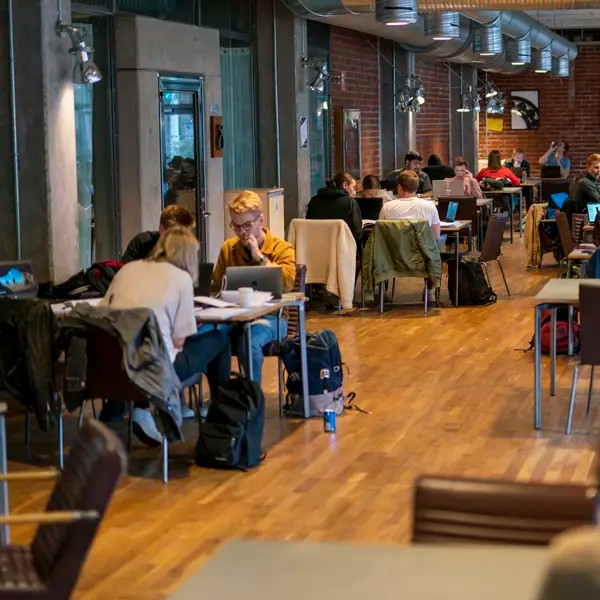
Software is rapidly becoming the main driving force for innovation and development in a wide range of fields, including the automotive, telecom, and defence industries. Studying this master’s programme will give you a unique combination of advanced technical knowledge and management skills, preparing you for a dynamic and hugely exciting career in a fast-moving field.
Three main competencies in software engineering are addressed — advanced technical knowledge and skills, advanced knowledge of methods and processes, and advanced knowledge of industrial activities and practices, and after graduation, you will be excellently placed to begin a fascinating and challenging career in the area.
Software engineering and technology master's programme at Chalmers
Society is increasingly searching for hardware and software solutions that are dynamic rather than static, which can grow and develop during their life cycle. The current evolution is also creating the growing importance of software in several areas of society. At the same time, the size and complexity of software are constantly increasing alongside the pressure of speedy supply in turbulent environments with rapidly changing demands. To meet these challenges and the demands of delivering reliable and high-quality software.
Your studies will benefit greatly from the use of real industrial projects and collaboration with industry representatives from for example Ericsson, Volvo AB, Volvo IT, Volvo Cars, Saab and Astra Zeneca. In your future career, you will be a team player with the important holistic software engineering perspective the industry demands, able to handle technical and organisational challenges.
The master's programme combines a number of perspectives on software engineering, all of which promote the common goal of educating engineers who are skilled in designing quality software at low development and maintenance costs. Software engineering and technology is also a platform for future researchers who get qualified to perform advanced technological and methodological experiments in software engineering.
The programme focuses on three main competences in software engineering: advanced technical knowledge and skills, advanced knowledge of methods and processes, and advanced knowledge of industrial activities and practices. The combination of this knowledge is highly valued and in great demand in the software industry in order to support, innovate, and improve practices with new methods and tools.
The programme offers a mixture of conventional lectures, seminars, and project work in close collaboration with real industrial projects and industry representatives. Projects, group work, and student presentations are also important parts of the programme.
Topics covered
The subjects of software systems and information science are fundamental areas in the Software Engineering and Technology master’s programme. The courses included in the programme plan handle topics such as systems technology, human-computer interaction, human-centred design, software architecture and process management, software and modelling, software and real-time systems, software and security, and software and algorithms.
Career
Studying software engineering opens up a wide range of career opportunities within the development, design, management, and research of manufacturing and engineering companies, consulting organizations, and supplier companies.
Some examples include:
- Software developer: Design and implement the software modules of a system.
- Test engineer: Design test cases and carry out system testing.
- Project manager: Organize and lead software development projects.
- Software architect: Design system architecture and make key technical decisions.
- Software quality manager: Select processes and check software quality.
- Doctoral student/scientist: Study and conduct research to obtain a PhD degree in software engineering.
In these roles, graduates contribute to the technological development of society, its well-being, and competitiveness. They can be found in companies such as Volvo AB, Ericsson, Spotify, or various software companies within and outside of Sweden.
Research
The research group behind the programme has a long-term and established, track record of performing industrial research with partners such as Ericsson, Volvo AB, Volvo IT, Volvo Cars, Saab, RUAG Space, and Astra Zeneca. As a student, you will take part in the group’s research through seminars, thesis projects, and individual research projects. The programme offers various ways to participate in international research opportunities.
One concrete example is our link to the established research centre, Software centre, at Lindholmen science park in Gothenburg. At this centre, seven companies and four universities work together to accelerate the adoption of novel approaches to software engineering. The centre is operating in four research themes. In each theme researchers and industry meet in research projects directly connected to industrial challenges.
Find out more about research in Computer science and engineering
Requirements

How to apply - From application to admission
This is a step-by-step guide on how to apply for a Master's programme at Chalmers University of Technology.

